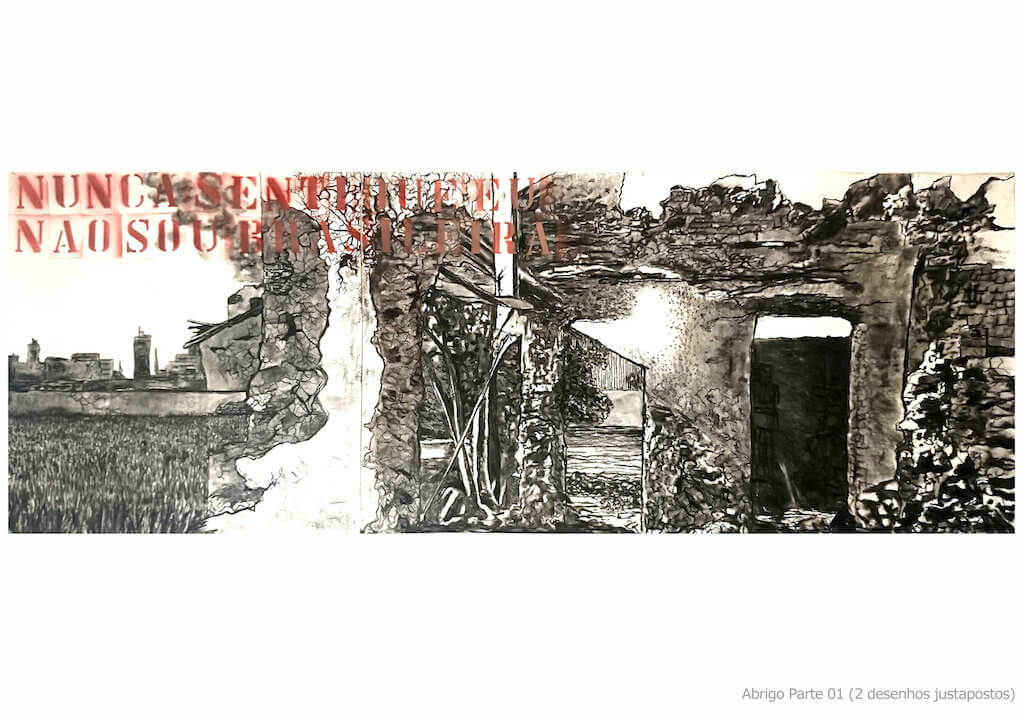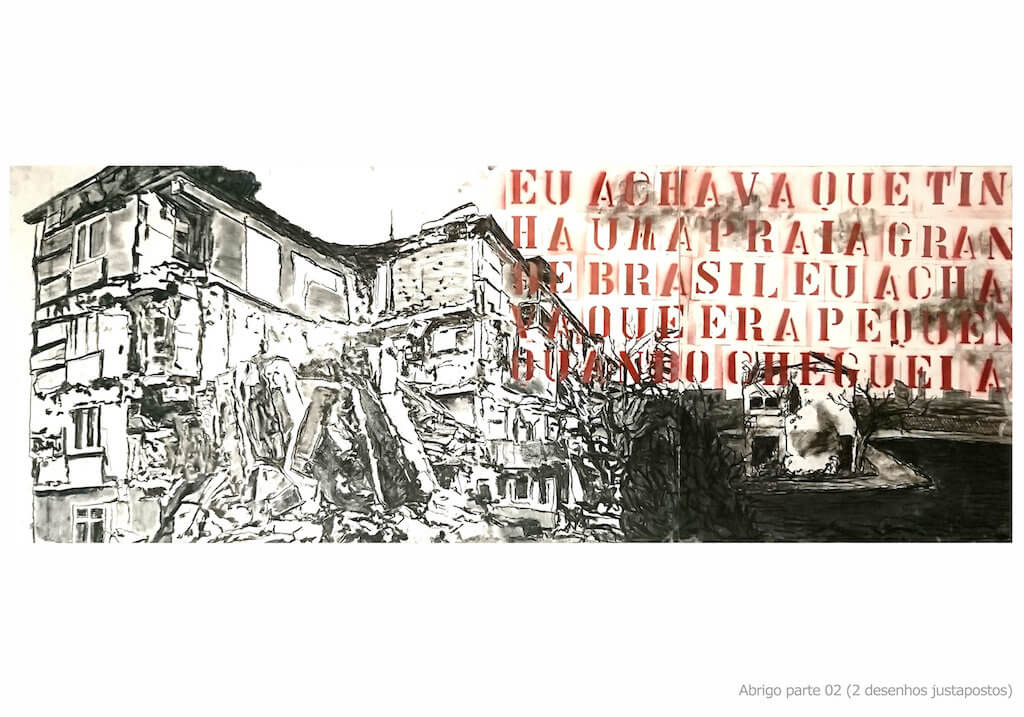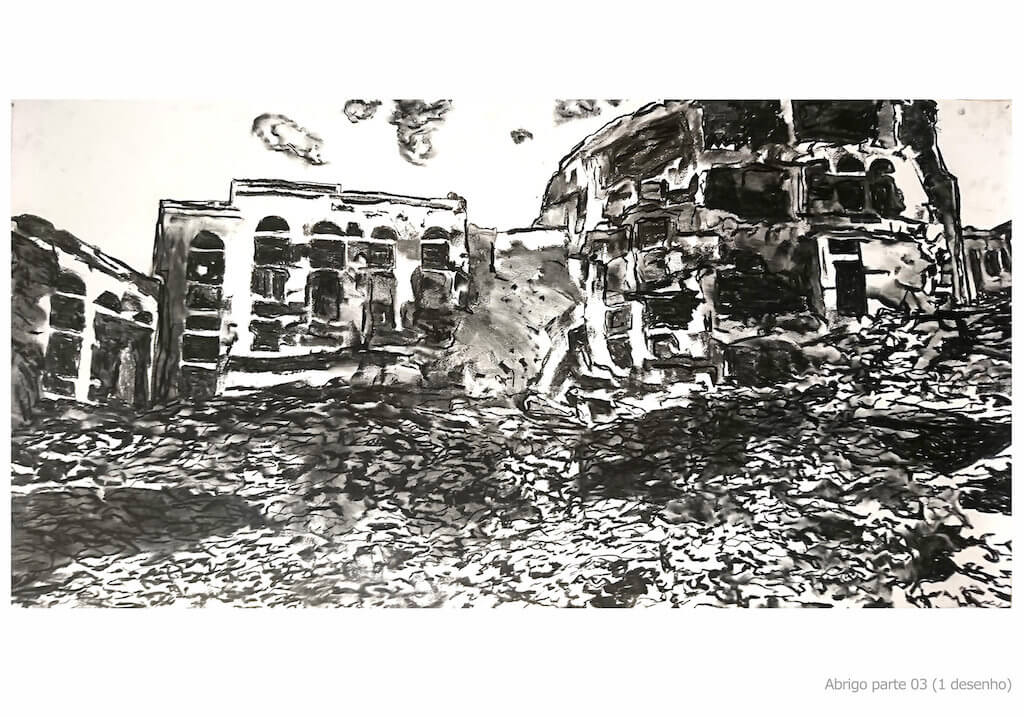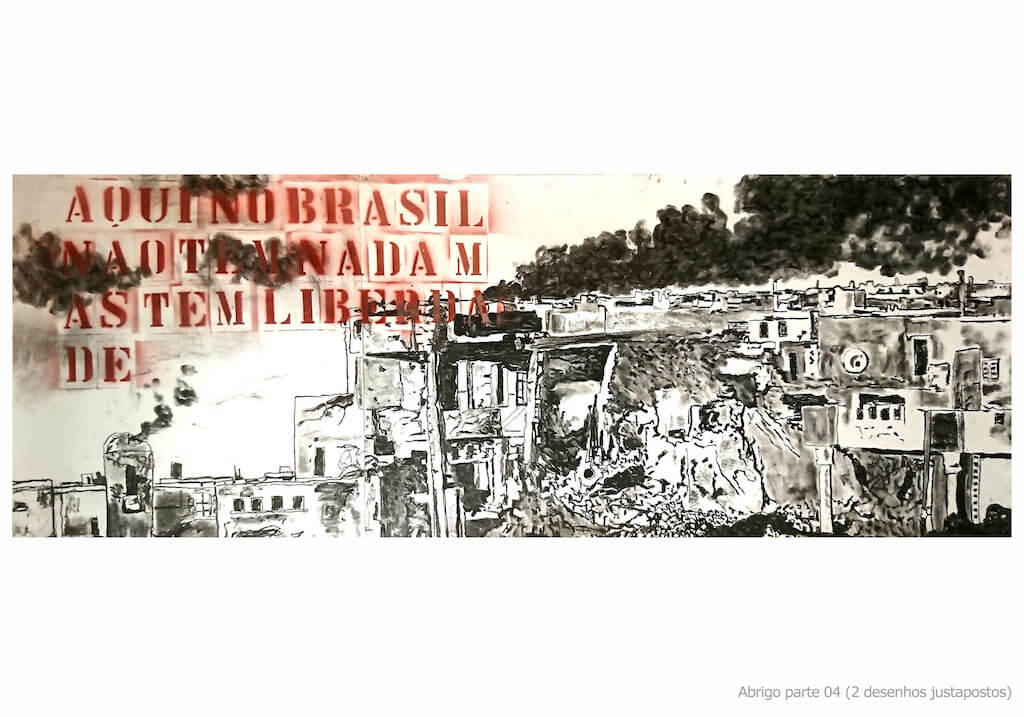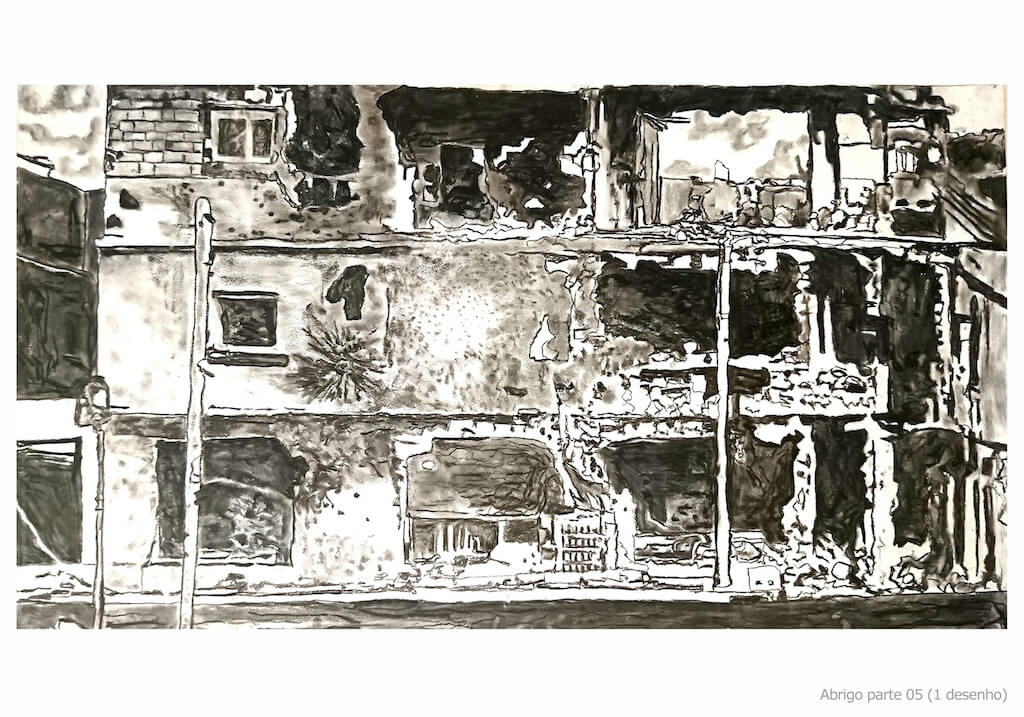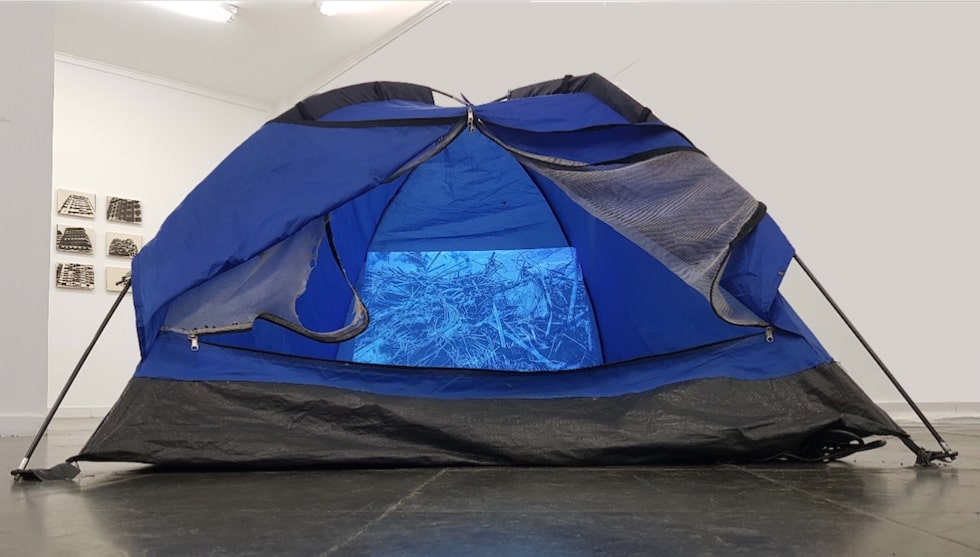


Estado de exceção [State of exception]
Individual by Fábio Leão
Text
Thais Rivitti
Opening
September 15, 2018
Exhibition period
09/17 to 12/06
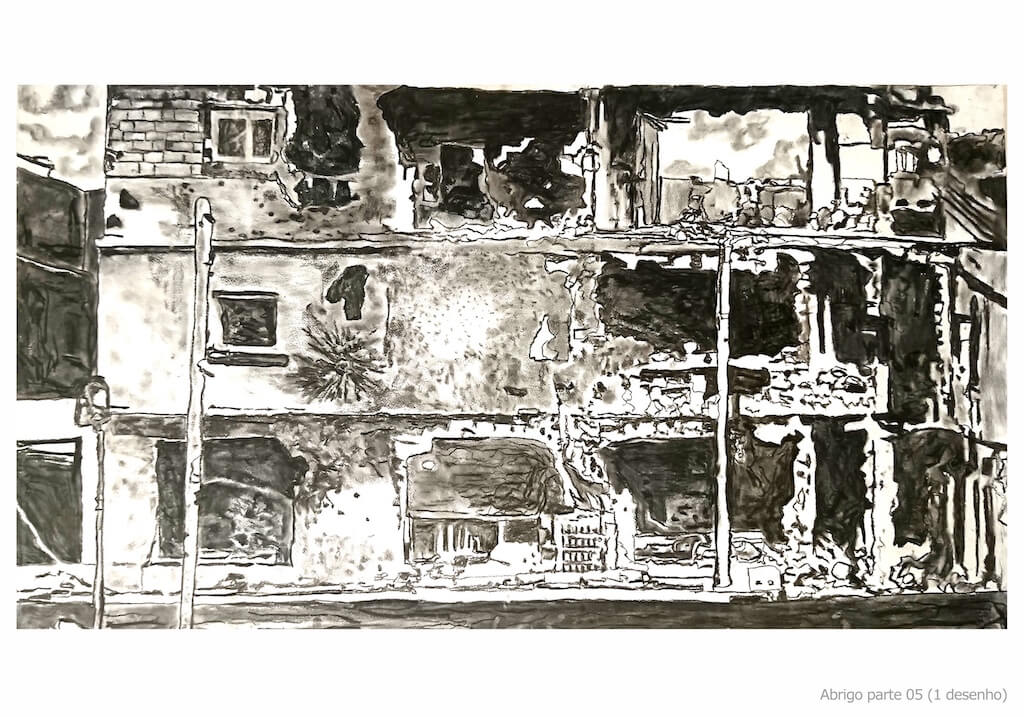
The works that Fábio Leão presents in the exhibition “Estado de Exception” show a surprising political shift in his research. For those who already know Fábio’s work, know that his curiosity has always been to explore the world around him. Thus, initially, he was interested in the closest objects, found in his own studio: tools and utensils that he handled on a daily basis. Afterwards, his work advanced to an environmental investigation: works made specifically for certain spaces and, more than that, from them. Both in the case of the first works and in the case of the site specific works, his concise procedure called attention. Basically, he produced monotypes whose matrices were the objects or fragments of the local architecture. Refusing, in a way, any kind of illusionism, he transported objects and environments to a two-dimensional surface. The artist thus created new, flat versions of what we knew as three-dimensional. These “new versions” of things and places had the ability to transform the banal – a garbage can, a hammer or even a museum room – into strange images. It took time to decode them because, in a way, we were standing in front of his shadow. And it was through this shadow, this black and white image, that we returned to the objects calmly and attentively, noticing their presence more accurately.
If I take a while to reflect here on previous works, it is because, alongside the obvious denunciation that the current works intend, they pose a question about what is visible or, rather, are an invitation to take a better look at certain situations. These new works – which are gathered here under the title of “Estado de Exception”, are presented as a compilation of the horrors to which we are exposed on a daily basis – clearly address burning social problems: the living conditions of refugees and inhabitants of large urban centers in poor countries and ecological disasters to stay with the main ones.
In “Sometimes words are frontiers”, a large drawing, we see a city in ruins, devastated by war. Interspersing the drawing, testimonies of refugees who came to Brazil seeking a better life can be read, as if they were also graffiti on walls and words of protest and denunciation. Also on the issue of borders, the work “Grade Inútil” combines an urban vocabulary – that of gates with piercing spears – with the impossibility of preventing passage and containing migratory flows.
In the series of Minas Gerais cities “Lembranças da Samarco S.A, Vale and BHP Billiton”, the theme is the rupture of the Fundão dam, which retained the tailings from the extraction of iron in the region of Minas Gerais, and which caused one of the biggest ecological disasters that occurred in the country, contaminating the Rio Doce basin. The tragedy, which occurred in 2015, was the trigger for the creation of this series whose name mentions the three companies involved in the accident. In these works, clay covers part of the surface of the painting. Because of the density and roughness of the material, the drawing is inscribed with great difficulty. The scenes of the disaster – houses invaded by mud, blocked roads, rubble – clash with the mud to become visible.
In the “Sieged Cities” series, the works are constructed by overlapping drawings made with different techniques. Here, the clash takes place between the images made with spray paint, an urban and industrial material, which refer to a more ordered geometry present in urban projects, and the organic character of coal, which cuts this plane, placing barriers, obstacles on the scene. , rubble. The desire for order and rationality is invaded by belligerent elements.
Every day, we are invaded by images of wars, conflicts, clashes, violence and destruction. They are everywhere: on the streets, on TV, on the internet, in movies, on the news, in life. The exposure is such that we are almost immune to them. We look, but we don’t see. The works that Fábio Leão presents are an invitation for us to see again.
Thais Rivitti
